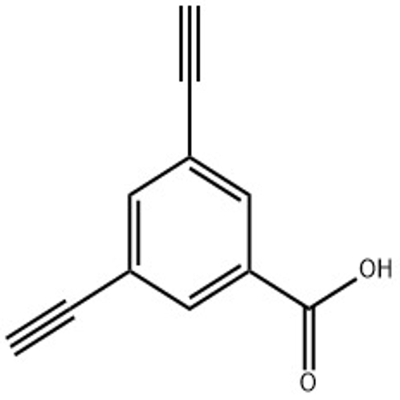-
Categories
-
Pharmaceutical Intermediates
-
Active Pharmaceutical Ingredients
-
Food Additives
- Industrial Coatings
- Agrochemicals
- Dyes and Pigments
- Surfactant
- Flavors and Fragrances
- Chemical Reagents
- Catalyst and Auxiliary
- Natural Products
- Inorganic Chemistry
-
Organic Chemistry
-
Biochemical Engineering
- Analytical Chemistry
-
Cosmetic Ingredient
- Water Treatment Chemical
-
Pharmaceutical Intermediates
Promotion
ECHEMI Mall
Wholesale
Weekly Price
Exhibition
News
-
Trade Service
The Instruction of 7-(benzyloxy)-1,2,3,4-tetrahydroisoquinoline: An Overview of its Role in the Chemical Industry
7-(benzyloxy)-1,2,3,4-tetrahydroisoquinoline, also known as BQQ, is a chemical compound that has gained significant attention in the chemical industry due to its unique properties and versatile applications.
BQQ is an organic compound that belongs to the family of tetrahydroisoquinolines, which are a class of molecules with a distinctive structure and a wide range of properties.
In recent years, the demand for BQQ has increased significantly due to its growing applications in various industries, including pharmaceuticals, agrochemicals, and cosmetics.
BQQ has been found to possess anti-inflammatory, antioxidant, and anti-cancer properties, making it an attractive molecule for the development of new drugs and other products.
The chemical industry has been instrumental in the production of BQQ on a large scale, and the development of an effective and efficient production process has been the subject of much research in recent years.
The Instruction of 7-(benzyloxy)-1,2,3,4-tetrahydroisoquinoline provides a comprehensive overview of the production process for BQQ, as well as its properties and applications.
The Production Process of BQQ
The production process for BQQ involves several steps, including synthesis, purification, and isolation.
The synthesis of BQQ typically involves the reaction of various reagents under controlled conditions, such as heating or cooling, to produce the desired product.
The purification and isolation steps are then carried out to obtain a highly pure and concentrated form of BQQ.
The production process for BQQ has been developed to ensure that the final product meets the required quality standards for various applications.
The quality of BQQ is critical, as it determines its effectiveness and safety in various applications, including pharmaceuticals and cosmetics.
Therefore, the production process must be carefully monitored and controlled to ensure that the final product meets the required specifications.
Properties of BQQ
BQQ is a versatile molecule with a wide range of properties, which makes it an attractive candidate for various applications.
Some of the properties of BQQ include:
- Anti-inflammatory: BQQ has been found to possess anti-inflammatory properties, which make it an attractive molecule for the development of new drugs for the treatment of various inflammatory conditions, such as arthritis and asthma.
- Antioxidant: BQQ has been found to possess antioxidant properties, which make it an attractive molecule for the development of new drugs and other products for the prevention of oxidative stress and damage.
- Anti-cancer: BQQ has been found to possess anti-cancer properties, which make it an attractive molecule for the development of new drugs for the treatment of cancer.
Applications of BQQ
BQQ has a wide range of applications in various industries, including pharmaceuticals, agrochemicals, and cosmetics.
Some of the most notable applications of BQQ include:
- Pharmaceuticals: BQQ is being explored as a potential treatment for various diseases, including cancer, arthritis, and asthma.
- Agrochemicals: BQQ is being developed as a potential ingredient in agricultural products, such as pesticides and fertilizers, to improve crop yields and protect against pests and diseases.
- Cosmetics: BQQ is being developed as a potential ingredient in cosmetic products, such as creams and lotions, to protect against oxidative stress and improve skin health.







